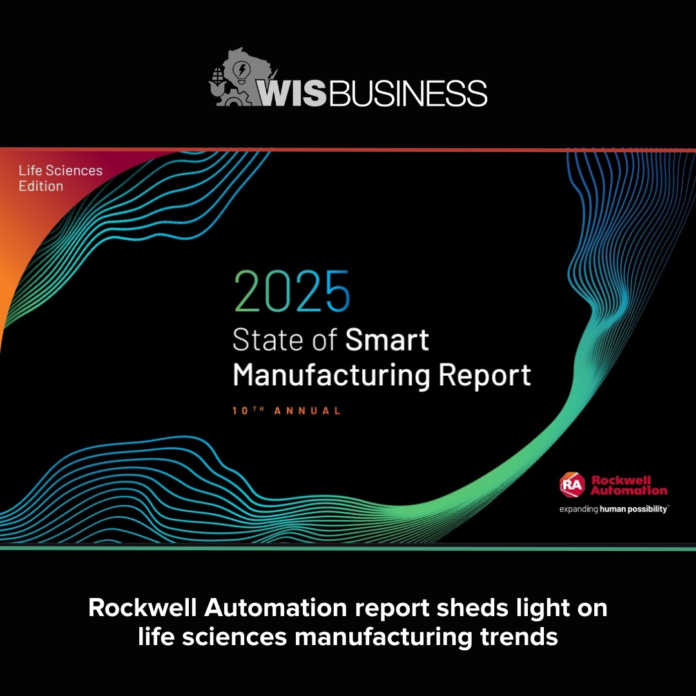Life sciences manufacturers see inflation and supply chain disruptions as bigger risks this year than last year, according to a report from Rockwell Automation.
The Milwaukee-based manufacturing company recently released its 10th annual State of Smart Manufacturing report. It included a section focused on the life sciences sector with insights from 143 respondents across 15 countries, capturing trends as life science companies “are entering a new phase of digital maturity.”
That’s according to Matt Weaver, vice president of global industry – life sciences for Rockwell Automation. He points to rising regulatory complexity and “mounting pressure to improve time-to-market” without reducing quality as key factors driving business decisions.
“This year’s report makes it clear that AI is becoming indispensable to modern life sciences manufacturing — not just to optimize efficiency, but to strengthen product quality, secure critical infrastructure, and upskill the workforce,” he said in a statement.
While workforce challenges were rated the top external obstacle by companies surveyed for the 2024 report, that concern has fallen to No. 4 in this year’s report. At the same time, inflation and economic growth and supply chain disruptions have risen to the No. 1 and No. 2 external obstacles for 2025.
Meanwhile, cybersecurity risks have risen from No. 5 on the list of external obstacles in 2024 to No. 3 in this year’s report.
Authors note life sciences manufacturers are increasingly using AI and machine learning for cybersecurity applications, “reflecting a shift from viewing these technologies as purely efficiency-focused tools to essential components of digital risk management.”
The report found 48% of respondents plan to use AI or machine learning for cybersecurity in the next 12 months, and 29% believe cybersecurity risk is the “biggest external obstacle” to growth in 2025.
Other top applications for AI and machine learning include quality control with 53% of respondents, process optimization with 50%, robotics with 45% and supply chain management with 42%. Report authors note these technologies are being used to reduce errors, production downtime, operating costs and risks while boosting efficiency.
Still, less than half of respondents — 46% — say the data they’re collecting is being used effectively.
“These findings suggest a gap in the ability of life sciences manufacturers to use that data for real-time decision making and meaningful, measurable operational improvements,” authors wrote.
See the release and full results.






